16歲的德國交換高中生 Lenja 環保綠生活
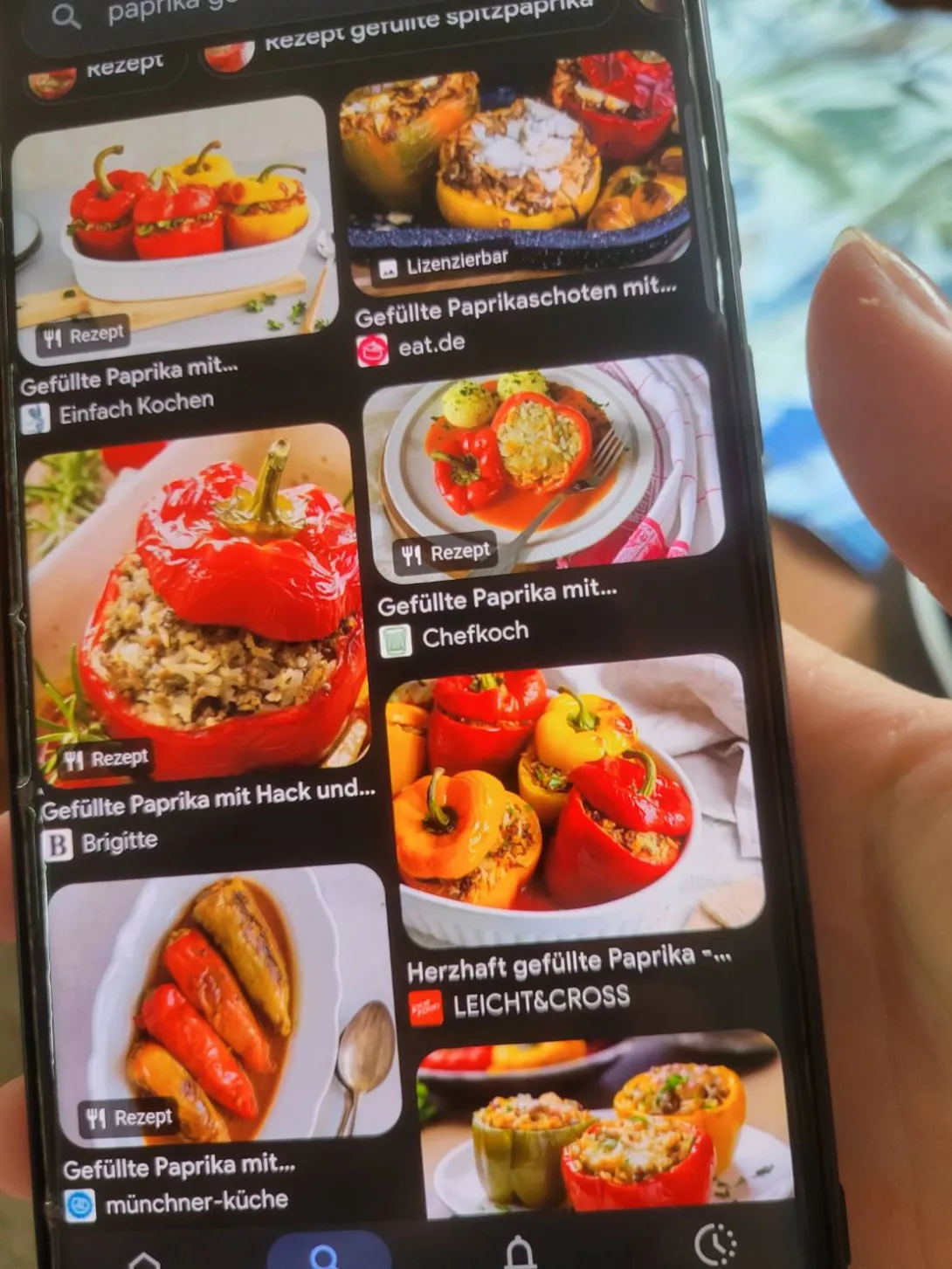
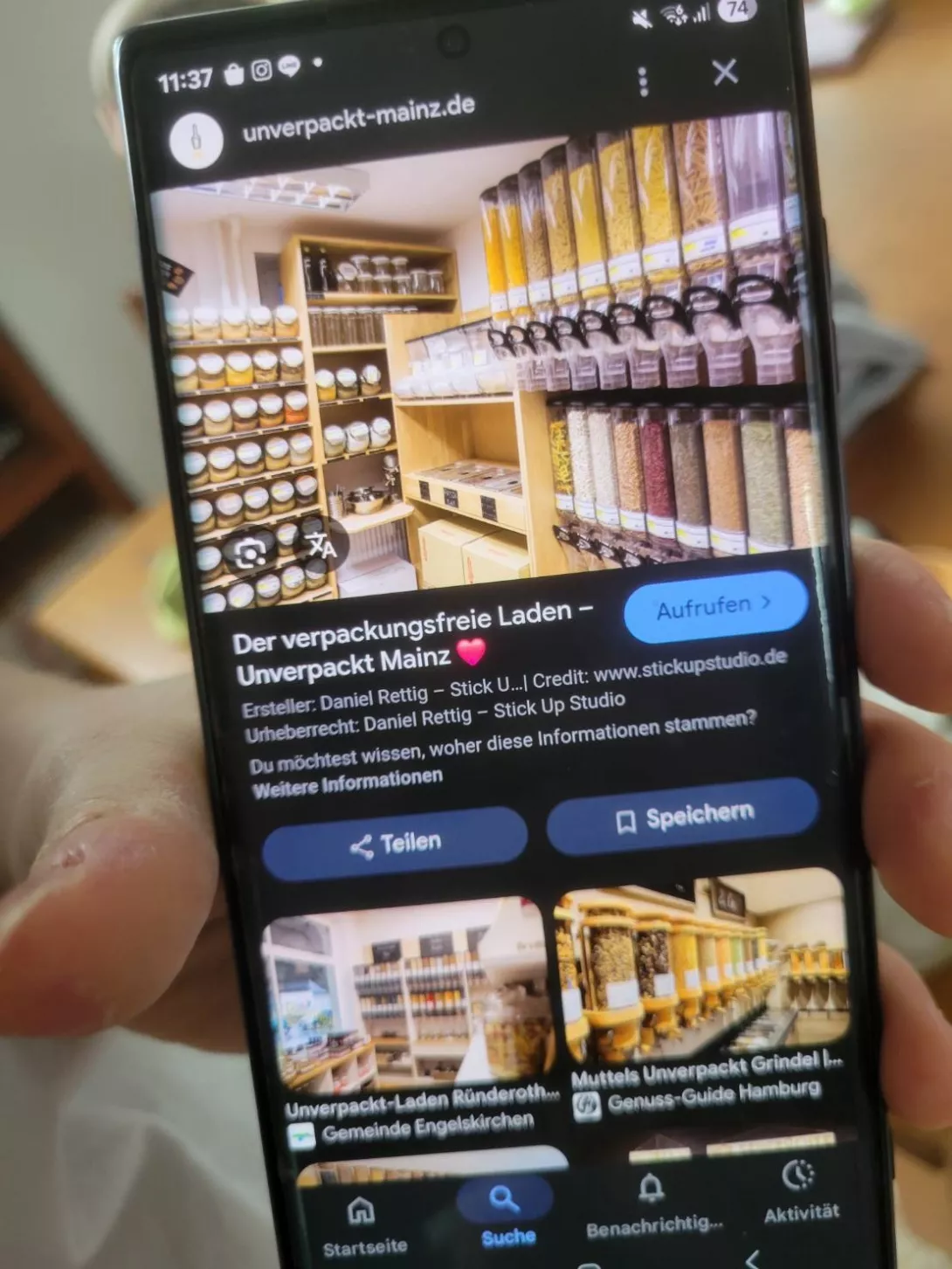
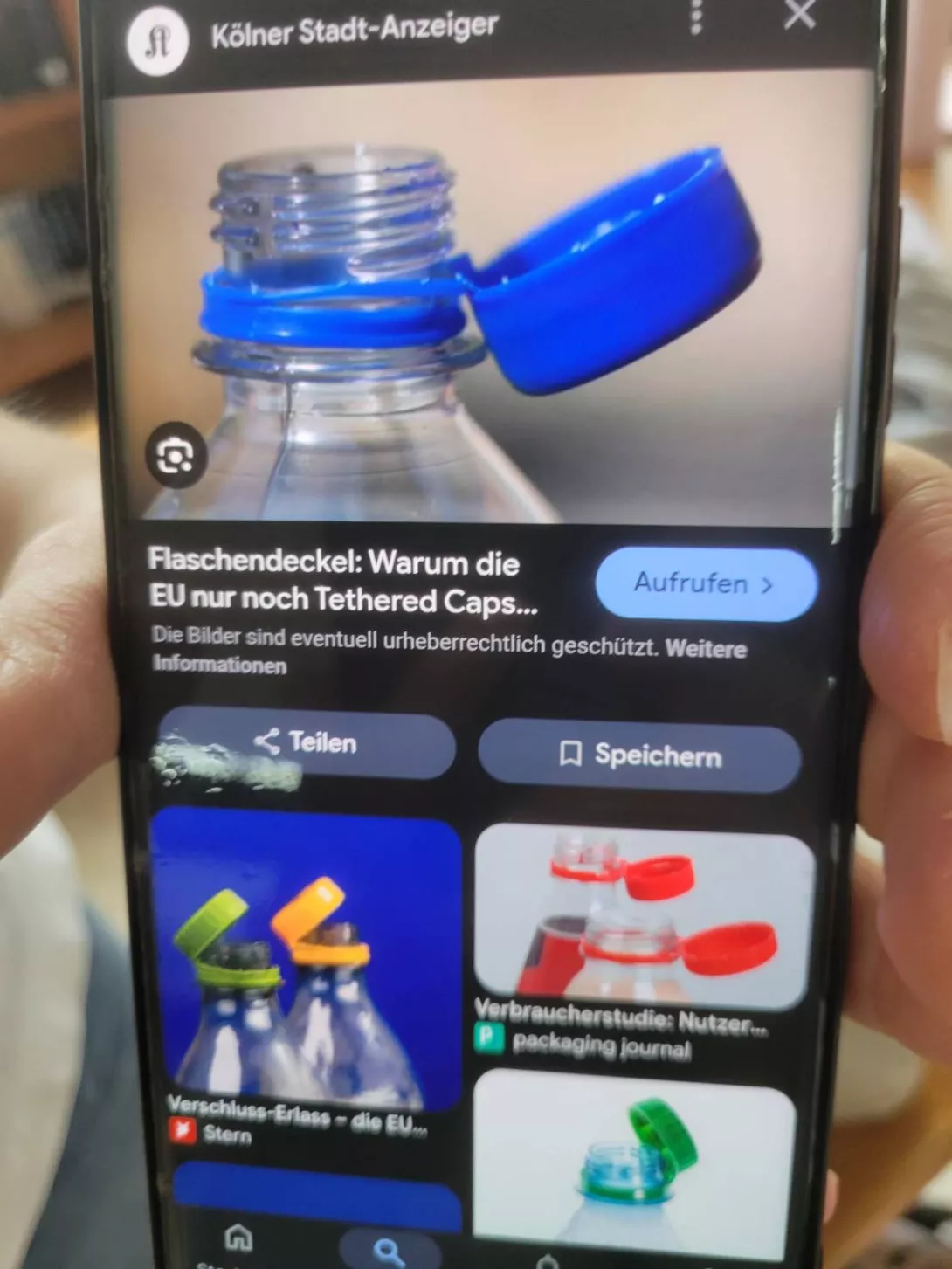
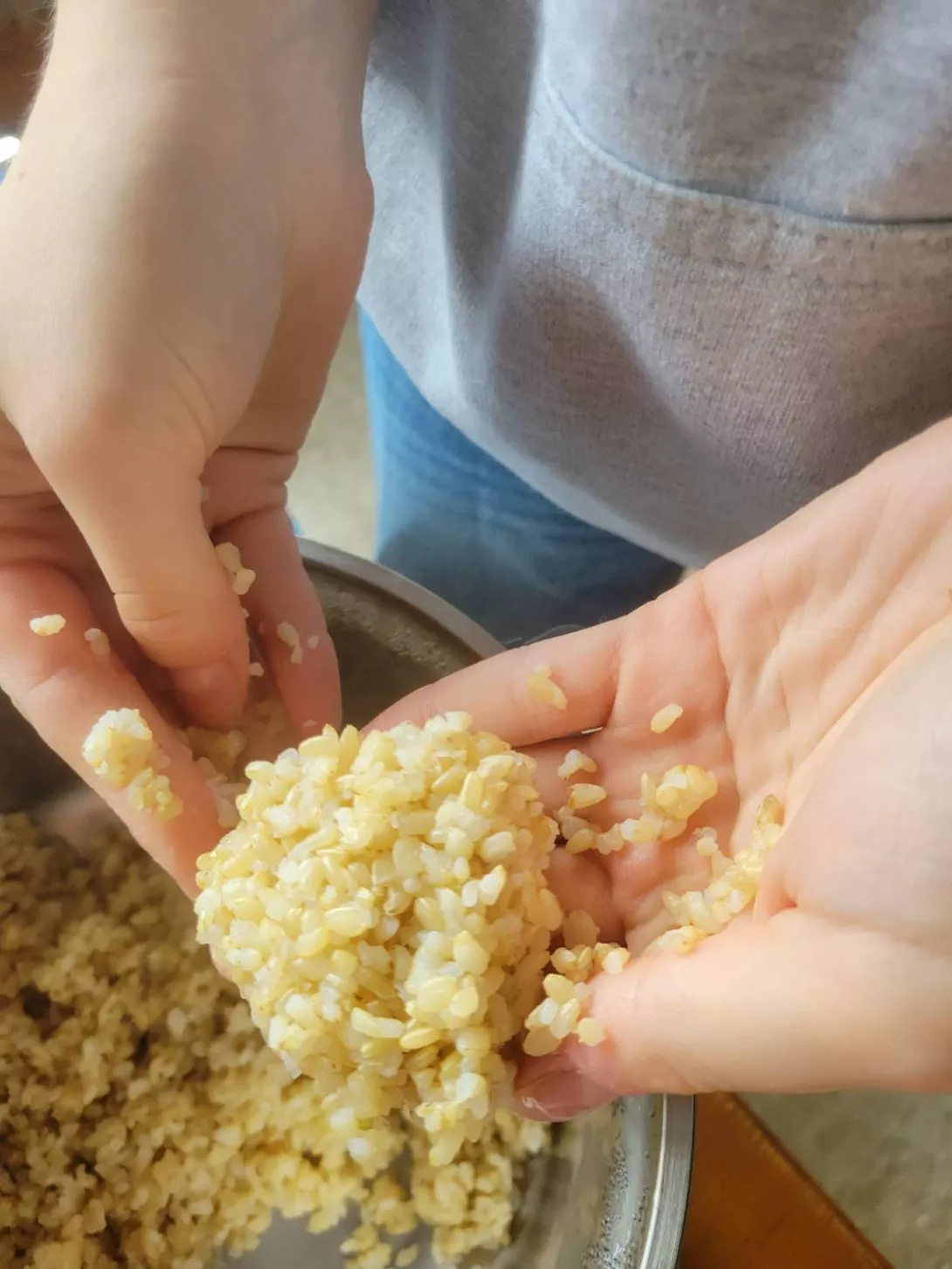
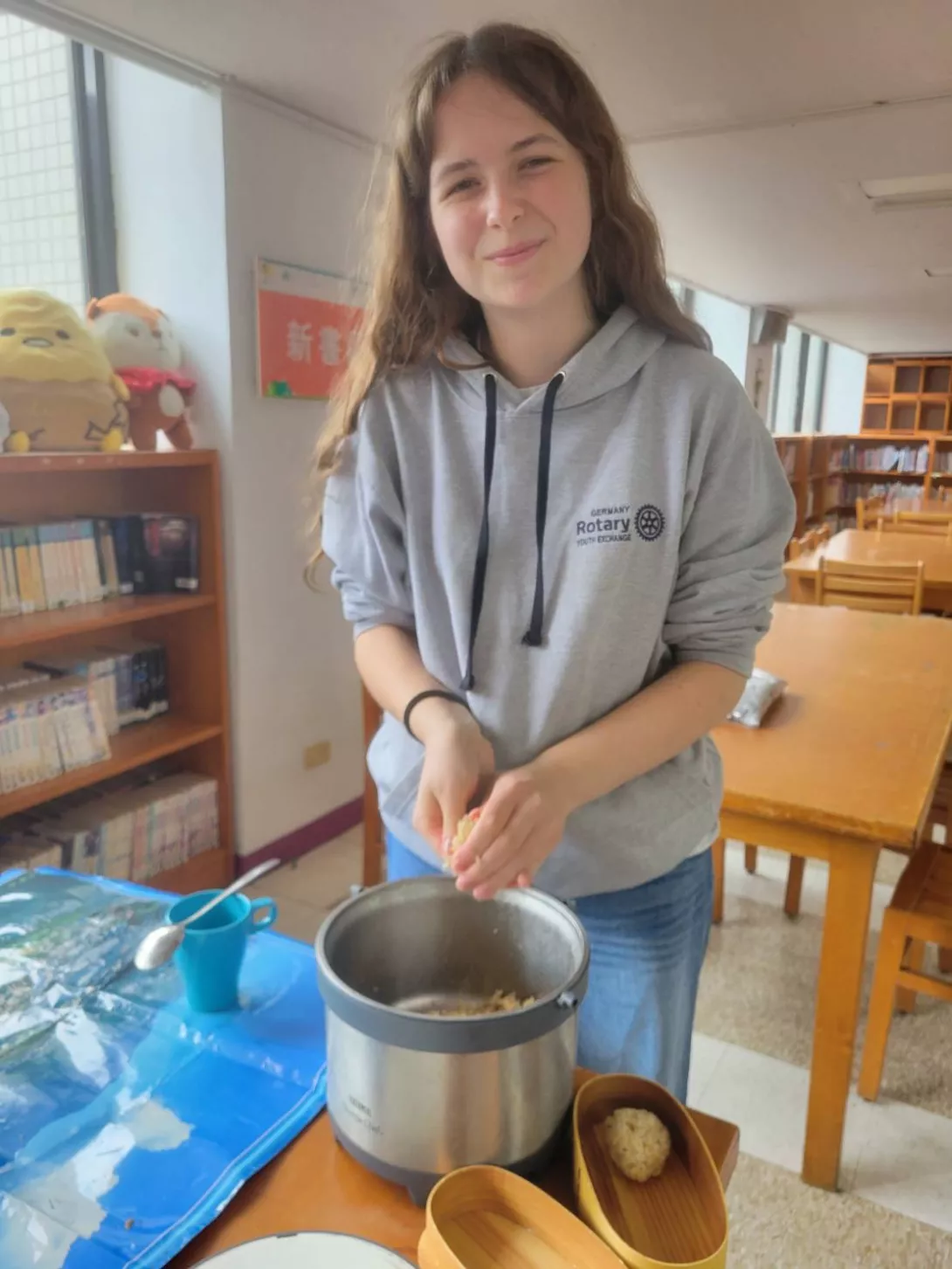
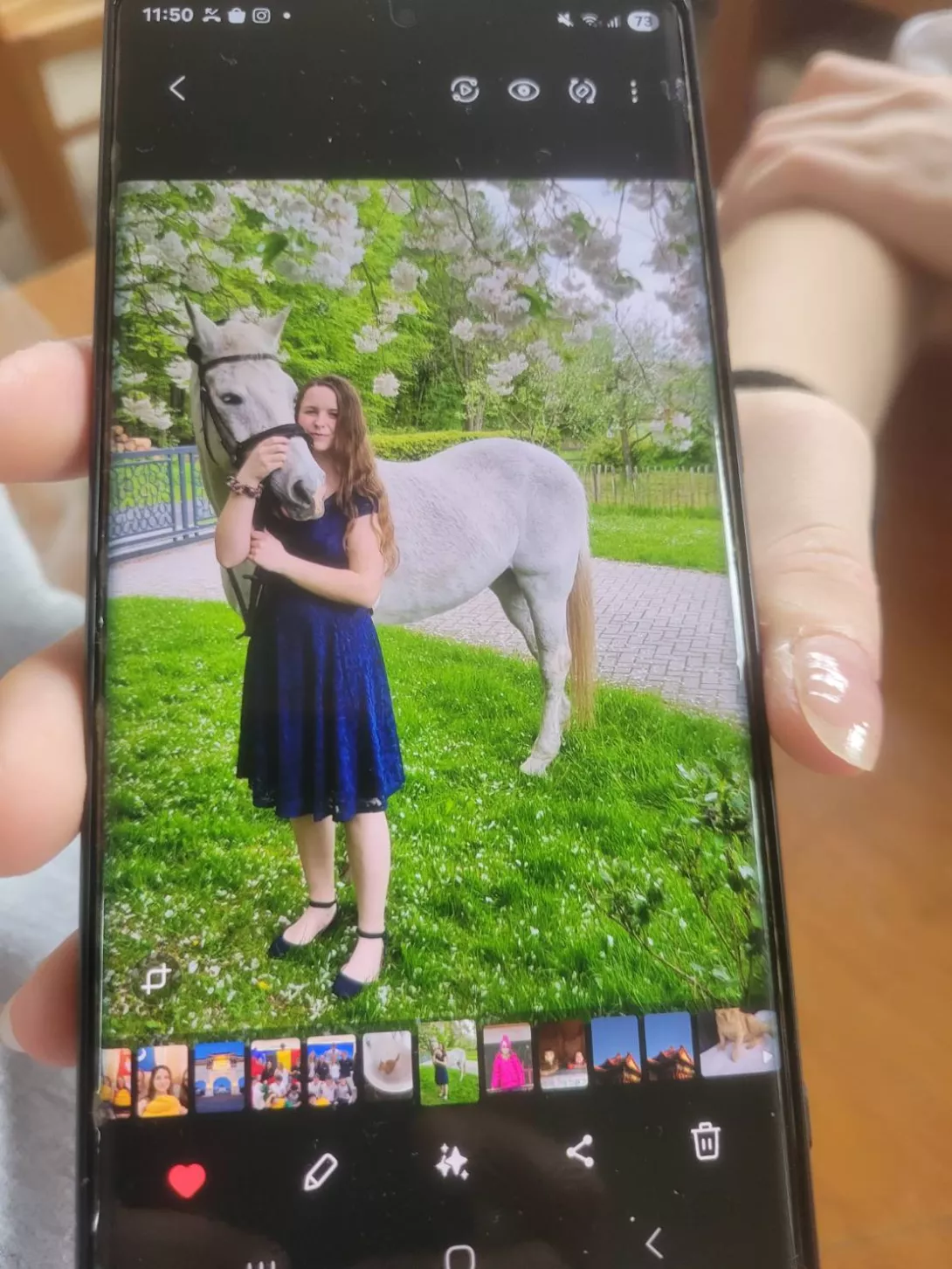
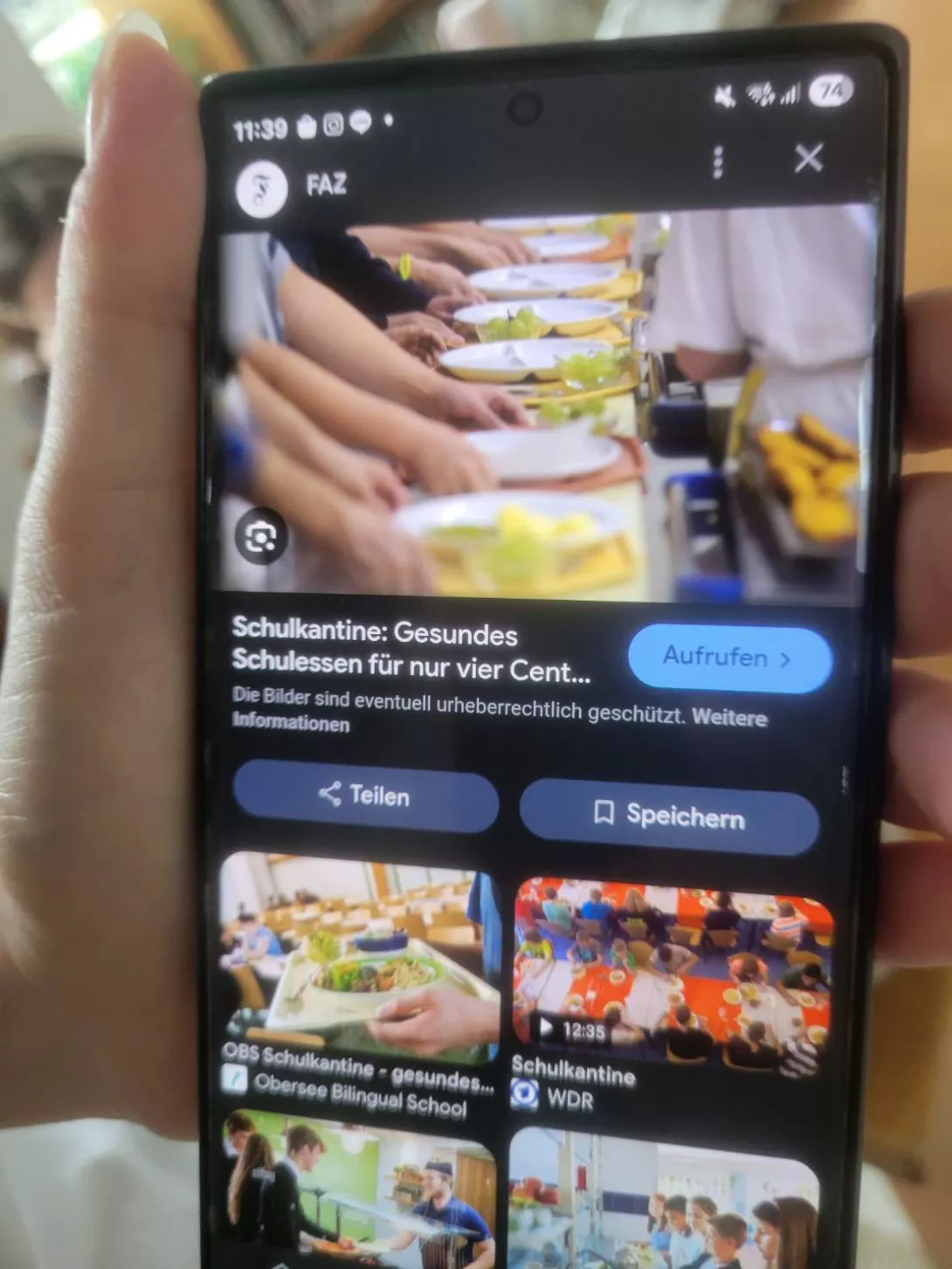
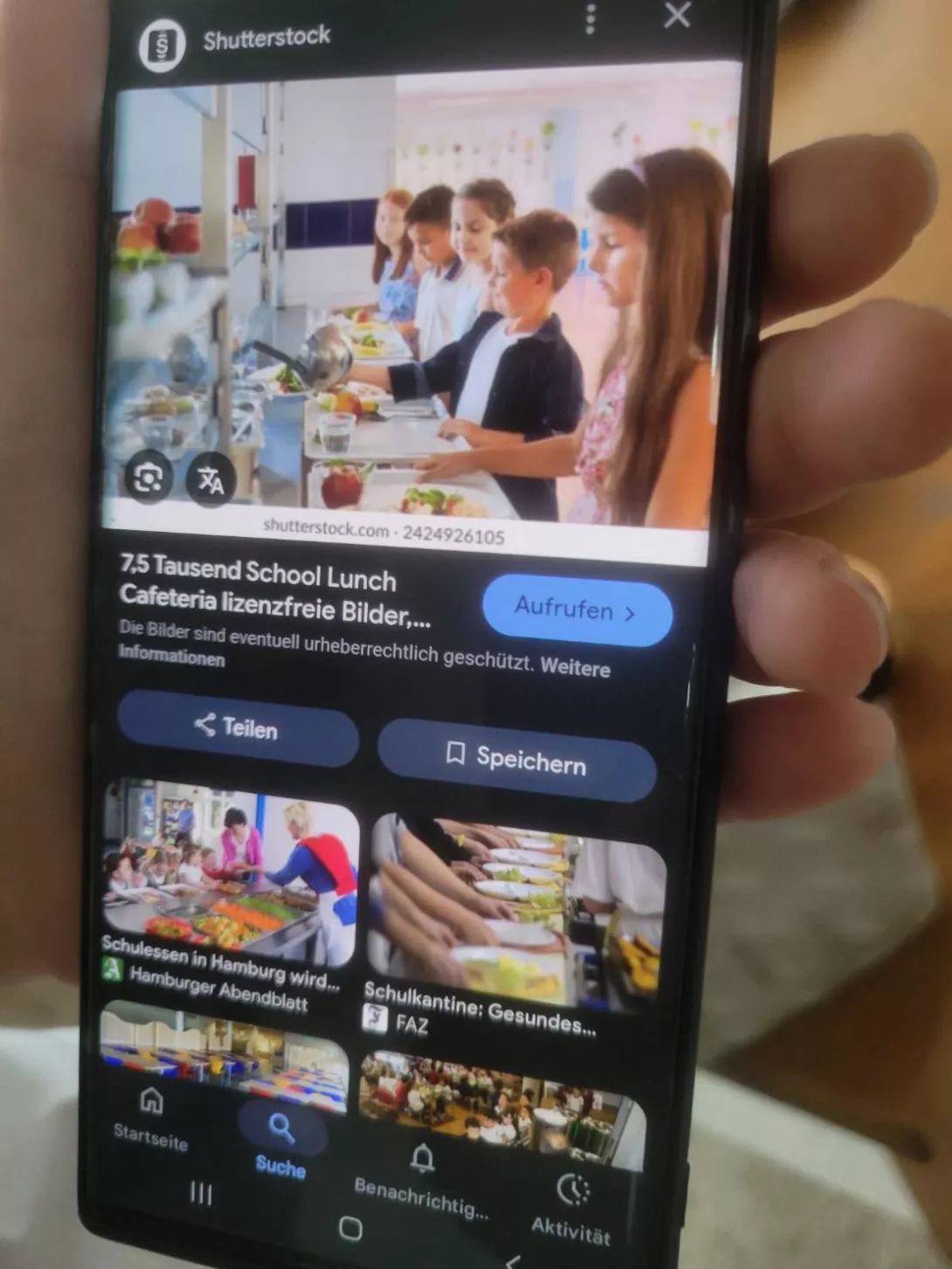
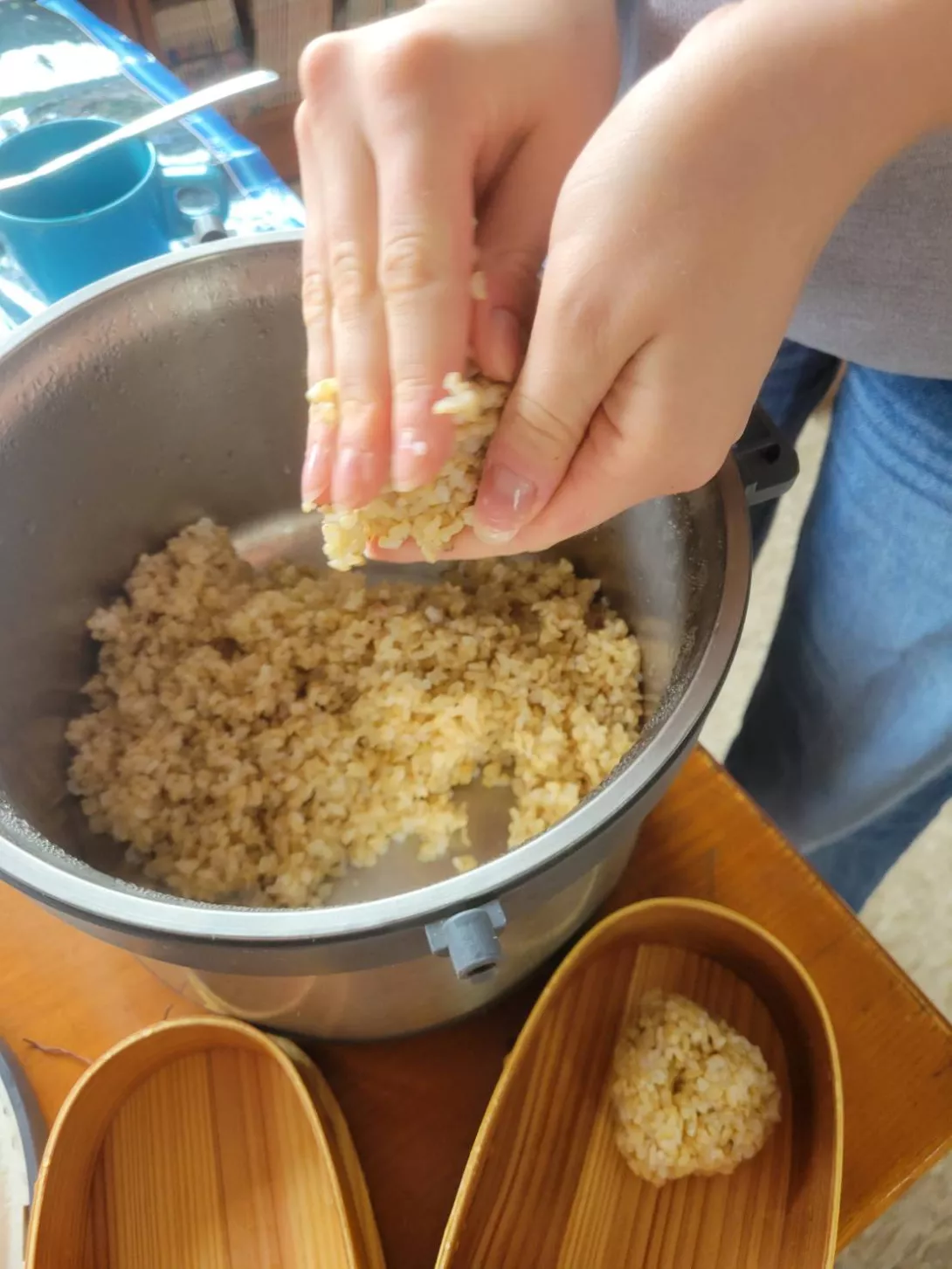
2025.11.14
Lenja是16歲的德國交換高中生,我和Lenja 分享台灣稻米文化和生態,忘記準備避免飯粒黏手的鹽水來捏飯糰,所以手上黏滿飯粒,我翻開<<稻田裡的教室>那本書,讓她看到米栽種的照片,每一粒米都是經過許多人工辛勞才能獲得,鼓勵她把手上的飯粒吃光,還告訴她,台灣以前長輩會被說「飯粒要吃乾淨,以後才不會嫁(娶)另一半臉上長麻子。」
Lenja, a high school exchange student from Germany. I shared Taiwan's rice culture and ecology with Lenja, but I forgot to prepare salt water to prevent the rice grains from sticking to my hands when making rice balls. So my hands were covered in rice grains. I opened the book "Classroom in the Rice Fields" to show her photos of rice cultivation, explaining that each grain of rice requires a lot of hard work from humans. I encouraged her to eat all the rice grains off her hands and told her that in the past, elders in Taiwan would be told, "You must eat all the rice grains so that you won't marry a partner with pockmarks on his face."
Lenja分享她的環保綠生活如下
Lenja shares her eco-friendly lifestyle as below:
一、早睡早起 Go to bed early and get up early
6點起床、6:30在家吃完早餐、在家餵動物~有馬、雞…等、7:14搭公車去上學、晚上11~12點睡覺。
Go to bed early and get up early. Get up at 6:00, have breakfast at home at 6:30, feed the animals at home (horse, chicken, etc.), take the bus to school at 7:14, and go to bed between 11:00 and 12:00 at night.
二、自己動手煮食 Cooking at home
她就讀的德國高中8:00開始上課,到13:00或15:00下課(12點仍然有課程),學校沒有提供午餐,她都是回家後才吃中餐,因德國外食很貴,一人份大約要50歐元、約1700~1800元台幣,所以身為獨身女的她,下課會幫忙忙碌上班的爸媽煮飯菜。在德國她最喜歡的米食是彩椒飯。包括德國、波蘭外食都很貴,所以同學們聚會,都會先在家吃飽,才約出去聚會。
Her German high school starts at 8:00 AM and ends at 1:00 PM or 3:00 PM (classes continue until midnight). The school doesn't provide lunch, so she eats at home. Eating out in Germany is very expensive, costing about 50 euros (approximately NT$1700-1800) per person. As an only child, she helps her busy working parents cook after school. Her favorite rice dish in Germany is bell pepper rice. Eating out is expensive in Germany and Poland, so her classmates always eat at home first before going out to meet up.
她還說歐盟全面禁止使用塑膠吸管改用環保吸管、寶特瓶蓋是無法分離提高回收率、學校排課不會太緊湊,學生有足夠的休息時間內用餐盤吃飯,不需要像台灣的學生抓塑膠餐盒去上課,還有許多自己帶容器購買的雜糧店。
She also mentioned that the EU has completely banned the use of plastic straws and replaced them with environmentally friendly straws; PET bottle caps are non-separable, increasing recycling rates; and school schedules are not too tight, giving students enough time to eat on their plates instead of having to bring plastic lunchboxes to class like students in Taiwan. There are also many grocery stores where you can bring your own containers to buy grains.
三、人生除了課業還有很多重要的事 Life has many important things besides schoolwork.
她說雖然德國學校比台灣較早的時間下課,可是要求很嚴格,有一些同學成績拿到3分就哭出來(德國成績 1~6分、1是最好),然而她覺得學校不是最重要的,包括自由的時間、興趣也是很重要的,她四歲看到鄰居有騎馬,就很喜歡馬,告訴爸爸希望7歲時能夠擁有自己的馬,爸爸很驚訝她7歲時還記得這件事,所以將朋友的老馬給女兒當生日禮物,因這隻馬野性強,所以她還騎馬受傷好幾次,甚至骨盆歪斜,仍然不減對騎馬的熱愛。在台灣她很想念她的馬。
雖然她說學校不是最重要的,不曉得是否是常常動手做,手指很有力,她寫的中文比台灣孩子寫得還漂亮,我分享時稻米和生態,她也很熱衷學習,自主學習的精神高人一等。
Although she said school wasn't the most important thing, I don't know if it's because she often does hands-on activities, but her fingers are very strong, and her Chinese handwriting is even more beautiful than that of Taiwanese children. When I shared about rice and ecology, she was also very enthusiastic about learning, and her spirit of self-directed learning is outstanding.
年紀輕輕的她,很清楚知道自己想要的人生,能夠侃侃而談和一般人不樣的價值觀,並動手實踐與落實,真期待她未來發展的寬廣天空以及影響力。
At such a young age, she clearly knows the life she wants, can speak eloquently about values that are different from those of ordinary people, and takes action to put them into practice. I really look forward to her broad future development and influence.

回應文章建議規則: